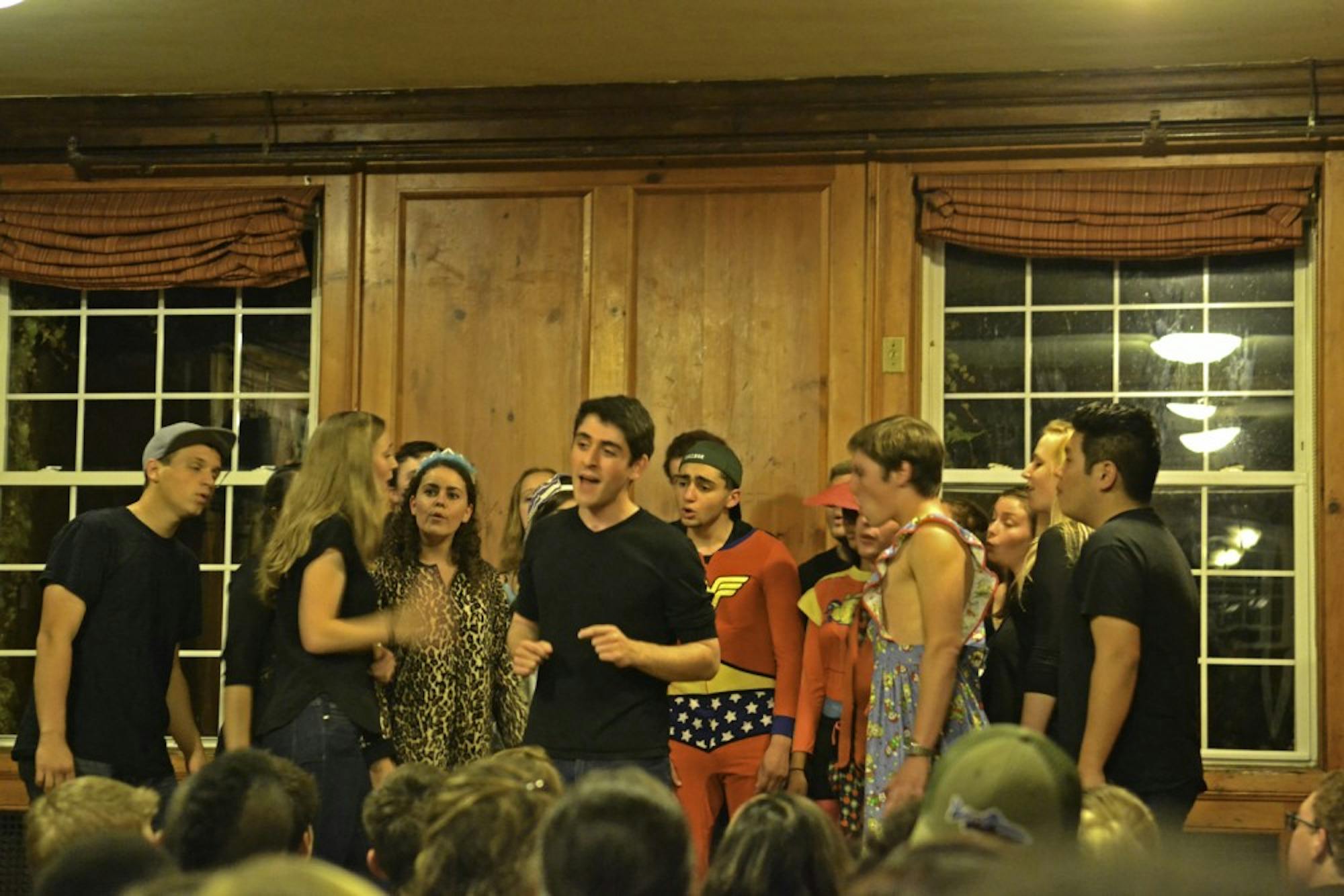During the Greek Leadership Council’s six-week freshman ban on Greek events serving alcohol, the GLC sponsored more than 60 events with its $25,000 budget, up from $20,000 last year. In an informal poll of 53 freshmen, 90 percent said they had attended a GLC-sponsored event.
GLC accountability chair Sarah Lucas ’15 said the past six weeks allowed freshmen to experience Greek life without the risk of alcohol. This fall marked the policy’s second year.
“We very much want to introduce freshmen to the Greek houses, but we’re just trying to do that in a different way than it has been done before,” she said. “It’s really an effort to place the focus on not consuming alcohol. It’s readjusting the way that upperclassmen and freshmen interact.”
The GLC has already put on more than 60 events during the first six weeks of the term and expects to hold 12 more events during Homecoming weekend, when the policy still applies to freshmen. Lucas said GLC-sponsored events have included dance parties, crafting events and daytime musical shows.
While some were more reflective, like Wednesday night’s “What I Wish I Knew” panel at Kappa Delta Epsilon sorority, during which affiliated and unafilliated women shared their thoughts on Greek life, others have seen freshmen carving pumpkins and dancing to ’90s music.
Allotted to the GLC by the Dean’s Office, the $25,000 budget will likely have been exhausted after the weekend, Lucas said.
In an informal survey of 53 freshmen, including 30 women and 23 men, 48 said they had been to one or more GLC-sponsored events, and the majority had attended three or more. Thirty-two found the events enjoyable or extremely enjoyable, and 33 said they felt comfortable or very comfortable with Dartmouth Greek life.
None of the students surveyed said they had been to a Greek house while alcohol was served, though Lucas said the GLC heard cases of freshman violations. She declined to comment on the number of reported violations.
The ban, announced in May 2013, was designed to create a safer environment for freshmen and mitigate the risks that Greek houses face when hosting them. It also aimed to encourage freshmen to explore alternative social scenes, bond with their classmates and join clubs and other activities.
Nathalie Ferneau ’18 said she enjoyed GLC-sponsored events like musical performances, while many of her friends also enjoyed the fraternity dance parties. Looking to the policy’s benefits, Ferneau said freshmen became closer to each other while spending time in their rooms.
Still, she said that not being allowed into all fraternity and sorority events had its drawbacks.
“When you go to larger events you’d get to meet more people from other grades, and I really feel like I haven’t gotten to meet upperclassmen yet,” she said.
Other students also cited flaws with the GLC-sponsored activities. Anthony Marquez ’18 said that many of the dance parties were too crowded because everyone was trying to squeeze into the same event, though he said he supported the goal of promoting first-year unity.
“You get to know people outside of a fraternity setting, and you get to spend more time with a tighter group of friends that you may meet on your floor or whatever it may be,” he said.
Marquez said, however, that he does not think the GLC policy successfully increased freshman safety at the start of fall term.
“Drinking still happens, and it happens I think in a less safe manner because you drink in a dorm room with other freshmen who may not be experienced or know how to handle their alcohol,” Marquez said. “It’s unrealistic to expect freshmen to not drink, I think the best way is to realize what’s going to happen and to help it happen in the most safe way possible.”
The proportion of alcohol-related incidents involving first-year students decreased from 49 to 46 percent between fall 2012 and fall 2013, according to data released in January by the GLC and the Dartmouth College Health Improvement Program.
Richard Berman ’18 said he recognized the importance of promoting class unity but also saw downsides to the policy. He said he believes it “encourages furtive drinking” and separates freshmen from upperclassmen.
“It can isolate the class, and it’s not only important to have unity within your class but within the school,” he said.
He pointed to a similar but more lenient model like that of Northwestern University, which has a two-week freshman ban at fraternities and lets students rush during winter quarter of their first year.
Members of the Class of 2017 interviewed just before the ban was lifted last year also said that while they appreciated the class bonding, drinking remained prevalent.
Last year, the GLC attempted to moderate expectations by sending a campus-wide email noting “the week after Homecoming is usually a relatively calm week and freshman should not anticipate large parties being held.”




